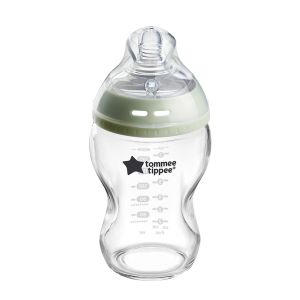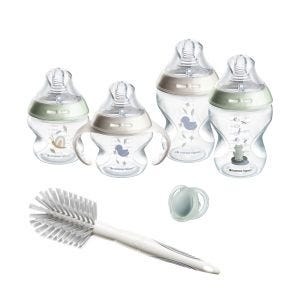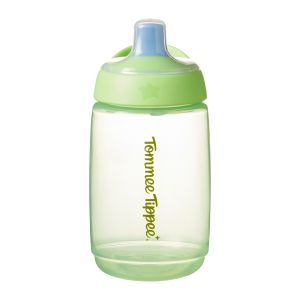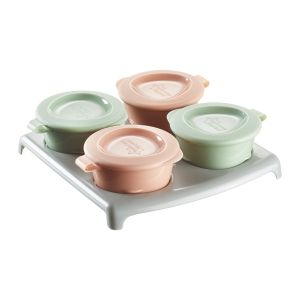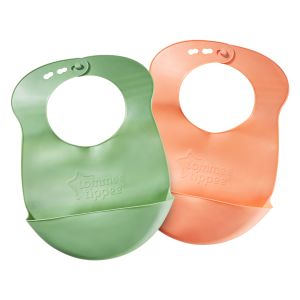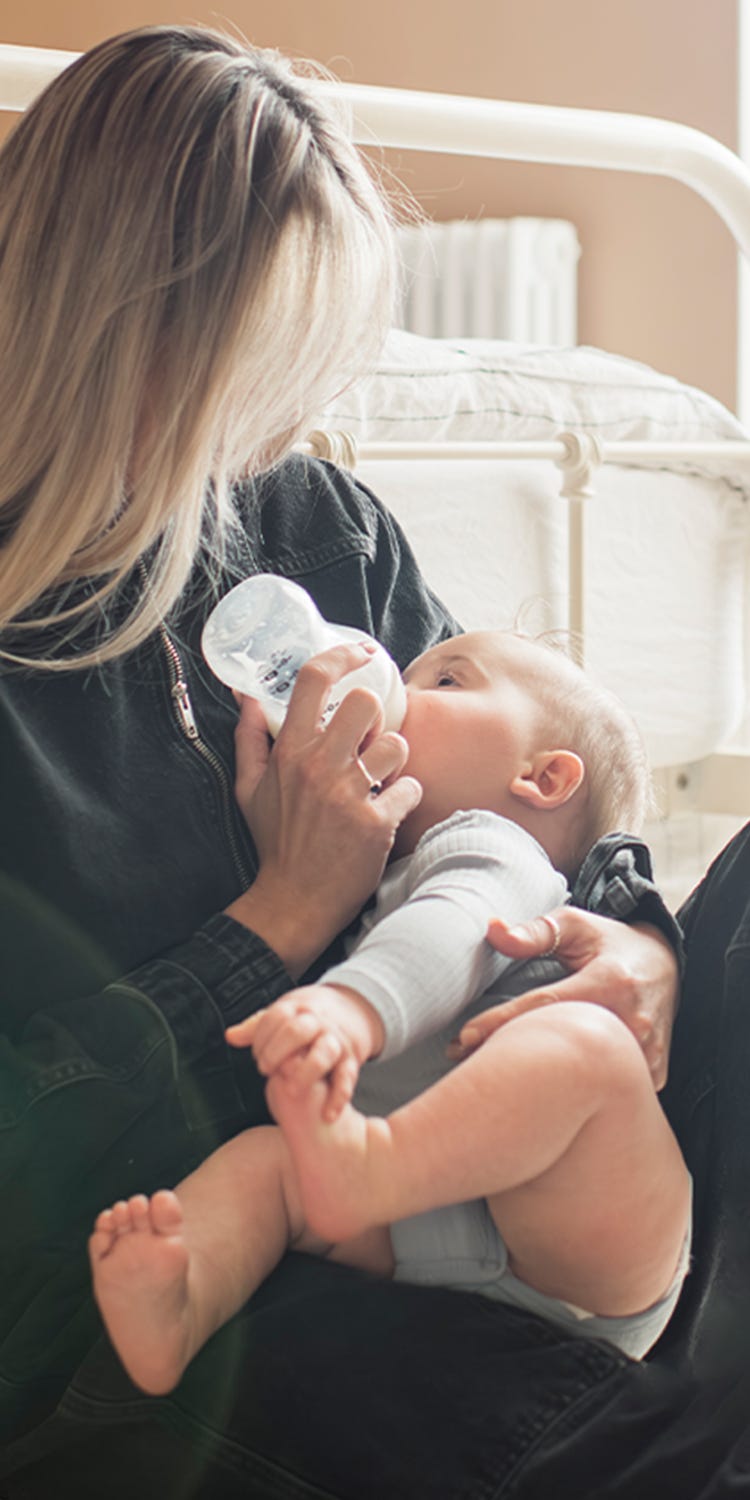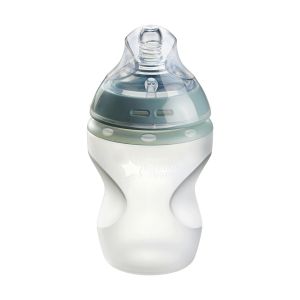
Tommee Tipps
We found the most asked questions around breastfeeding and brought you the answers.
The Top Breastfeeding Questions, Answered
You've read up on all the feedings options and may have even begun breastfeeding but still have questions. We found the most asked questions around breastfeeding and brought you the answers.
How do I know if I’m doing it right?
You will know your introduction to breastfeeding is going well if your baby’s mouth is wide open and their bottom lip is curled back – although admittedly it’s hard to see that from your position!
Other reassuring signs are the tops of your baby’s ears wiggle when they suck and you can hear the sound of your baby swallowing. You may also notice a tingling feeling in your breast, as the milk flows down to your nipple when he or she is latched on properly.
If you’re in any discomfort though, just slip your finger gently into the corner of your baby’s mouth to unlatch him/her, and then try again. Remember, the first ten seconds may be very uncomfortable, but this should quickly settle down and not be painful at all.
What else can I do to make sure my baby feeds well?
These three tips can help to ensure your baby is being fed well when you are just starting to breastfeed:
- Practice makes perfect - Helping your baby latch onto your breast is the main skill you both need to learn in the early days. With plenty of practice and support, you’ll be glad you hung in there. It gets a lot easier after about 4 to 6 weeks too.
- Eat well – Eat regularly and more calories than you would normally be used to in order to maintain a good milk supply without feeling tired, irritable and even depressed. As in pregnancy, try to eat a balanced diet with as much fresh food as possible.
- Drink well - You may be more thirsty, so aim to drink lots of water and not too much tea, coffee or carbonated drinks. Even sparkling water should be avoided, because the acidity can filter through into your milk and make your baby feel unsettled. It’s a good idea to keep a jug or glass of water close at hand, especially when you’re actually nursing, as breastfeeding can make you very thirsty.
How do I know when my baby has had enough breast milk?
Once your baby’s properly latched on, you should let them feed until they let go of the breast or fall asleep. You should also offer both breasts at every feeding session, although your baby may not want both every time. If your baby fills up on just one breast, offer him or her the other one first next time. Some mums find attaching a ribbon to that bra strap or putting a hair tie on that wrist is a good reminder of which breast to offer next!
How often should I breastfeed?
Your body makes milk on a supply and demand basis, so the more your baby feeds, the more milk you’ll produce. Therefore, feed whenever your baby seems hungry. Make sure you have plenty of rest as well, especially in the early days, to maximise your milk production.
When can I introduce a bottle or soother?
You may be keen to get your baby used to a bottle, but it’s best to wait at least 4 to 6 weeks until breastfeeding is really well established, in case you put your baby off the breast. Sucking on a bottle teat is different from sucking on an actual nipple, and babies can get confused in the early weeks.
Should I give my baby extra water or formula?
Providing your baby is feeding regularly on demand and is settled after a meal, gaining weight and having 6-8 wet nappies in 24 hours, the answer is no to giving your baby extra water or formula! Breast milk is all your baby needs and introducing anything else will reduce the amount of time your baby sucks at your breast – which will in turn reduce your milk production.

